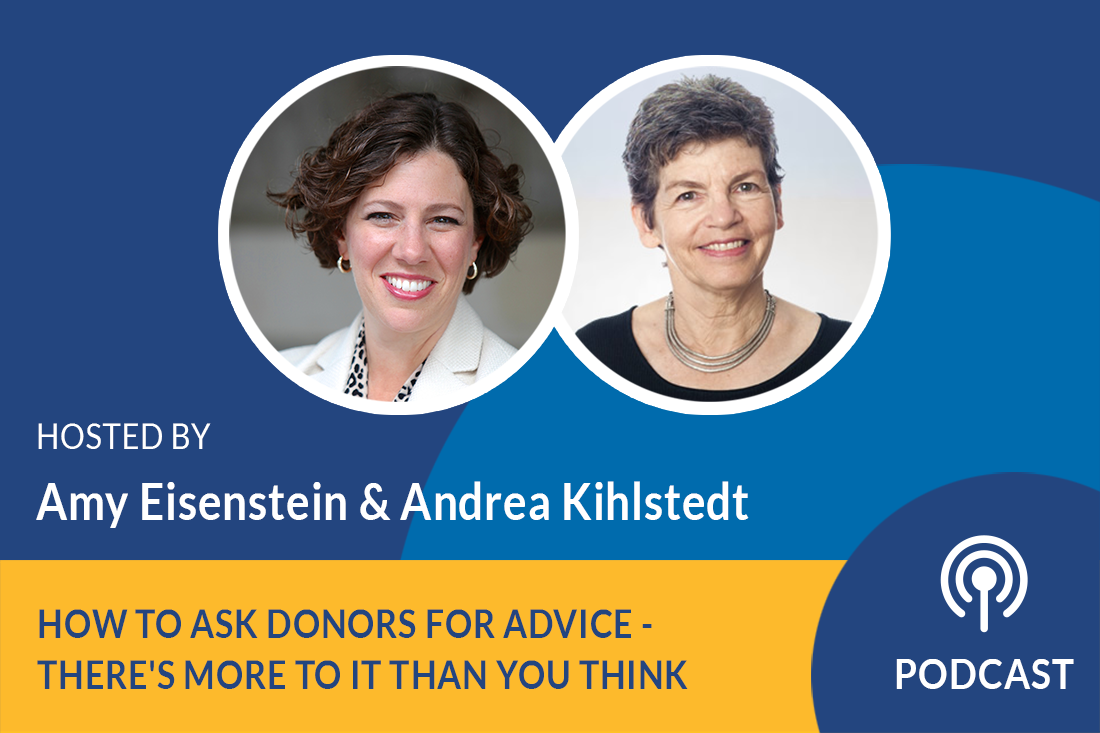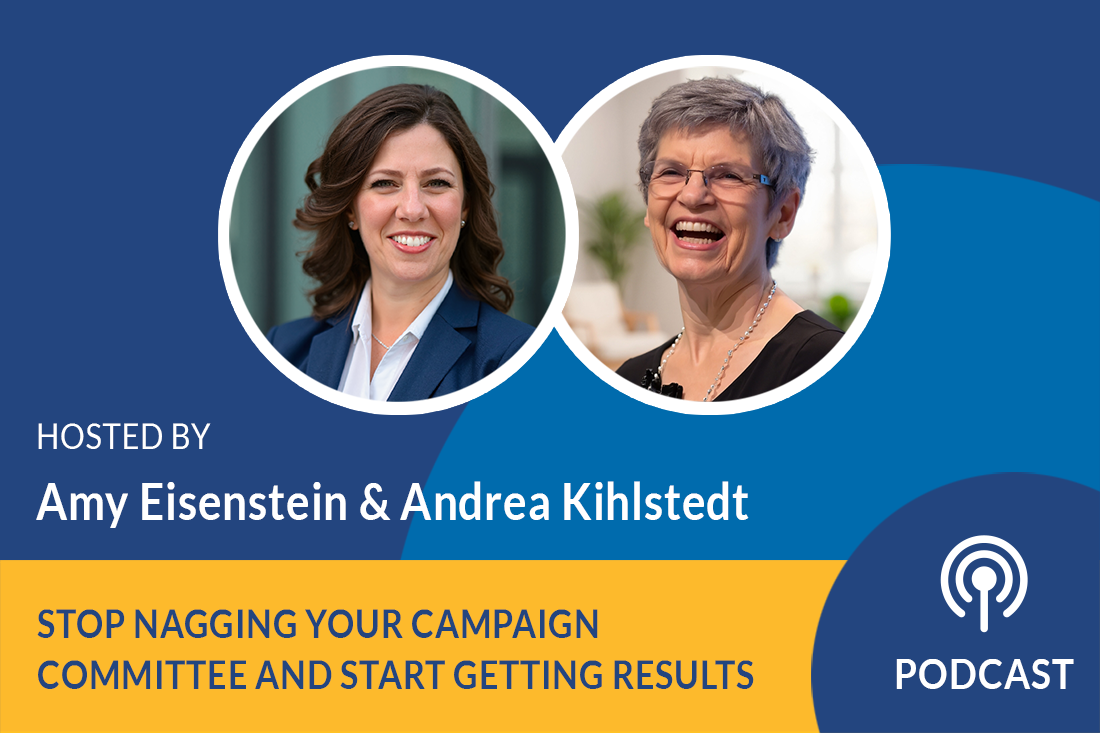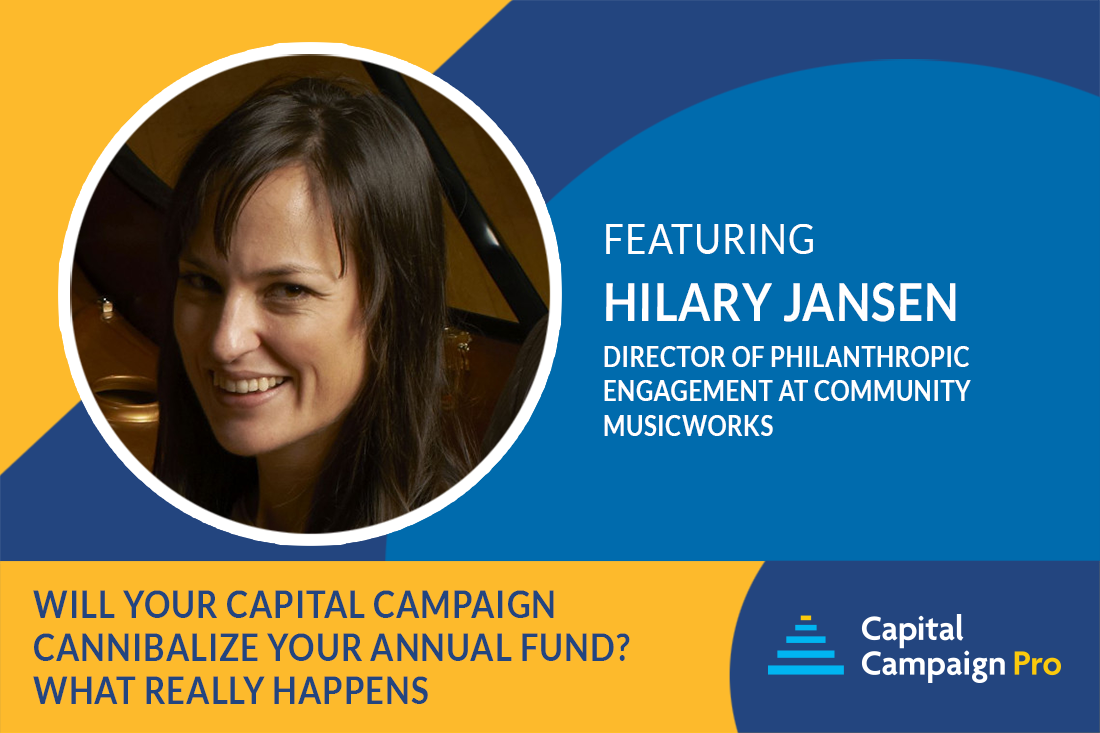Podcast: How to Ask Donors for Advice – There’s More to It Than You Think

Season 3, Episode 67
Fundraising is part art, part science. In this episode, Amy Eisenstein and Andrea Kihlstedt discuss the fine art of asking donors for advice.
Listen Now:
Amy Eisenstein:
There’s lots to know when it comes to asking donors for advice and we’re going to unpack it today. Stick around.
Hi, I’m Amy Eisenstein. I’m here with my colleague and co-founder, Andrea Kihlstedt. And we are excited to talk to you about asking donors for advice because there’s lots of confusion and hesitation around asking donors for advice, and it’s such an invaluable part of the fundraising process.
Asking Donors for Advice: Keep it Relevant
So Andrea, get us started. How should listeners think about asking donors for advice?
Andrea Kihlstedt:
Great. Thank you, Amy. Nice to be here today.
The key lesson about asking people for advice, I mean the simplest and most important lesson is to ask people for advice about something that they can reasonably give you advice in. So don’t ask people for advice about things they don’t know anything about. That’s a mistake.
Amy Eisenstein:
You’ll make them feel bad.
Andrea Kihlstedt:
Right. And they’ll wonder:
Why in heaven’s name are you asking them for that?
Right? If someone were to come to me and ask me for advice about real estate, I’d scratch my head. I don’t know anything about real estate. But if someone were to ask me for advice about capital campaigns, well, I have some expertise in that particular subject.
So before you go and ask anybody for advice, think about what they are expert in and frame your asks for advice around that, so that they will feel as though you’ve come to them for a real reason.
Amy Eisenstein:
Now don’t worry, we’re not just going to talk about professional expertise. Human beings have expertise in lots of different areas, and so we’re not just going to focus on professional expertise, although that certainly is one area that donors can give you advice. Let’s just start there because it’s the easy and obvious one, Andrea.
Professional Advice that Donors Can Offer
So what are some examples of professional expertise that people might be able to give you with regard to fundraising and a capital campaign specifically?
Andrea Kihlstedt:
You can certainly talk to people who have been through capital campaigns. Let’s say another organization in your community has been through a campaign, and you know the board chair. In fact, you’d like to cultivate their board chair for your organization. You could certainly ask that person for advice based on what they learned from the campaign, they did with their current organization. It’s a perfectly natural thing to do. They will feel as though they can share with you what happened. You’ll learn from them and you’ll learn more about them.
Amy Eisenstein:
Yeah. I think that can be extended to any philanthropists in the community that have been through multiple campaigns or participated in feasibility studies, or been lead donors, or been on boards. You can certainly ask them about their experience on a board with a campaign. That is a great place to start with people you know have experience with campaigns.
But now let’s talk about professional expertise. So in a campaign, you might be buying real estate. You might be building a building, so talking to people who are experts in real estate, or own construction companies, or architects, I mean, there’s lots of professional advice, certainly at the beginning of a campaign that you might talk to people about. What are some other examples?
Andrea Kihlstedt:
You can talk to:
- people in communications
- people who are designers
- people who are professional writers
You’re going to need campaign materials and you’re going to need to understand how best to write about your campaign. It’s going to be handy and helpful to be able to ask some real experts for advice along the way. But Amy, the kinds of advice that I like asking for is not the professional advice. That’s sort of the obvious advice.
Getting Donor Advice as Feedback
But I think there are other kinds of advice to ask for. One of the things that I really think is useful is that people are experts about their own opinions.
Amy Eisenstein:
Yes.
Andrea Kihlstedt:
It’s so important to realize that, that while I can’t ask someone what the case for support for my organization should be because they’re not going to know, I can ask them to read a draft of a case for support and give me their opinion of it because they’re experts at their own opinions.
Amy Eisenstein:
Right, and that’s true for everybody. Everybody’s an expert of their own opinions. Right?
Andrea Kihlstedt:
So it’s easy for us to forget about that, to not to remember that everyone will have an opinion about something. But in order to do that, you have to send them something to have an opinion about. And then ask them their opinion about it.
Now the challenging part about that, their opinions may not be the opinions you were hoping for. You may not like what they say. You may not agree with what they say. Should you still ask them for advice even though you may not get the results that you want?
Amy Eisenstein:
Yes. The answer of course is yes. And you mitigate it. Right? There are ways to mitigate that. And so you let people know that you’re asking for any advice, including professional advice probably, but you’re asking multiple people, but especially I guess when it comes to opinion advice. Right?
If you’re sharing your case for support, let them know you’re one of 10 people we’re asking for feedback, and we will take the best of the best, or compile it, or whatever we’re going to do with it. Then the very small subcommittee’s going to review it. So you’re not the only one we’re asking for advice. We’re asking a small, select group of which you’re one. And then they will understand that whatever they say may not wind its way into the final draft.
Andrea Kihlstedt:
Now I like the notion of letting people know that they’re part of a small select group. Don’t you like to be part of a small select group?
Amy Eisenstein:
Yeah. Makes me feel special. Right?
Andrea Kihlstedt:
Of course, so I like that notion.
Getting Donor Advice for Networking
Here’s another area of advice that I think is so powerful. Most every community has a philanthropic hierarchy. There’s just going to be a small group of people who are repeat major philanthropists in that community. They are going to give again and again. Maybe it’s a dozen people, let’s say. And those people are likely to know one another because they rub shoulders again and again at events, or with their organizations, or at the country club, or wherever they happen to rub shoulders.
So it is a reasonable thing to go to someone who is a major philanthropist in your community and ask them what you need to do to put your case in front of the other philanthropists in that community, how they would advise you to get to know the other people in the community. That’s of course exactly what you really want to know from someone. And there’s no reason in the world that you can’t ask for it in the sense of asking for advice.
Amy Eisenstein:
Right. I mean, you can ask for — It’s not the same as asking for a referral or a networking. Right?
Say if I were to think about approaching some of these people, how should I think about? Or how would you think about approaching them? What are the strategies that I should consider? So it’s not just … I mean, of course it would be great if they were to introduce you, and they may introduce you to one or two, but the bigger advice question[s are]:
- How should we approach people?
- How do you like to be approached?
- How have you been approached that’s been offensive?
- What has turned you off when a charity approached you?
- How should I make sure to not make those mistakes?
- What can I learn from you?
So I think those are some of the great advice questions.
Always Follow-Up on Your Advice Visits
Andrea Kihlstedt:
So one more thing I want to add to this, Amy, which is never have an advice visit that you don’t follow up on.
- First of all, if someone suggests that you do something, you probably should do it. That probably a good idea.
- And second of all, you should let them know you’ve done it. You should thank them for their help and let them know that you did go and meet with so-and-so and do such-and-such, and how helpful it was.
So don’t see an advice visit as being a once and done. See it as being the possible beginning of a conversation. And if you think about it that way, it actually might be the beginning of a much longer relationship that will stand you in good stead.
Amy Eisenstein:
Yeah, of course, that is the ultimate goal. You’re trying to engage people in your campaign and your organization for the long-term. None of this should be one and done. The goal is to build relationships.
Seek Advice About Your Organization’s Communication
One more idea, and that is for people that are close to your organization and involved, you are going to ask them about your organization. They have an opinion about that. So how do they feel about the communications coming out of your organization?
- Do they read the emails?
- Do they open the mailings?
- Do they feel stewarded?
- Do they feel thanked and appreciated?
- Do they know how their money was used?
There are lots of questions that you can ask them related to how you communicate with them and how they’re engaged.
- Do they know about volunteer opportunities?
- What would encourage them to consider volunteer opportunities?
- Do they know about the depth and breadth of your programs to the extent that whatever position they’re in that they should or might?
So I think there’s lots of good open-ended questions. And you want to be thoughtful about what you want to ask prior to sitting down in the meeting.
Summarizing and Final Thoughts
Andrea Kihlstedt:
So just to summarize, let’s go through a few key points that we’ve made here, Amy. Never ask anyone for advice about something they don’t know anything about.
Amy Eisenstein:
That is the cardinal rule. Right?
Andrea Kihlstedt:
Right.
Amy Eisenstein:
You don’t want them to feel awkward, or uncomfortable, or try and make things up on the spot because they’re not prepared to give you that kind of advice. You might even give them a hint at what you’re going to ask them in advance so they have an opportunity to think about it.
Andrea Kihlstedt:
And here are several areas that you can think about asking people for advice about:
- You can ask them for advice about their opinion about something. If you send them something and then have them review it and ask for their opinion, that’s always fair game and a good strategy.
- You can ask for professional advice to the extent that they are qualified to give you professional advice that you actually need.
- You can ask for advice about the philanthropic makeup of your community and who is sitting at the top of the philanthropic ranks of your community, and how best to introduce them to your project.
You can ask them for … What have I missed, Amy?
Amy Eisenstein:
Advice about your organization and your communication, and something we didn’t mention, but the same idea, how you’re perceived in the community, what your reputation is, what you might do to improve it, or what the concerns are.
Andrea Kihlstedt:
And finally, never ask anybody for advice and have that be the end of the road. Right? See it as the beginning of a relationship and be sure you let them know that you’ve followed up what they’ve suggested to you and what happened as a result, and thank them so much, and see how they might help you next time around.
If you do this as a steady menu, I mean not just when you’re in a capital campaign, but if you start making a practice of asking people for advice, once a week, every week, you can ask somebody important that is not close to you yet for advice, over the course of a year, you’ll be amazed at the relationships that you’ll be able to build.
Amy Eisenstein:
And the money will follow.
Andrea Kihlstedt:
Thank you, Amy.
Amy Eisenstein:
And the money will follow.
Alright, thanks so much for joining us. We’ll see you next time. Take care.



Leave a Comment